Round the World Families
Round the World Families published by the London Missionary Society, c.1945.
Round the World Families published by the London Missionary Society, c.1945. The game has 48 cards with 12 sets of four cards representing places around the world where the Society’s missionaries have carried out missions among the local population. Each of the families of four has a picture of local people and how they were being helped and a picture of one of the missionaries from past or present who had been connected to the place illustrated. The game is played like ‘Happy Families’. See the Rules►
Here is a list of those missionaries and the title of the place depicted: Calcutta, Hannah Mullens (1826–1861) • Erode, R A Hickling (1868–1936) • Gilbert Islands, W E Coward dates unknown • Hankow, Griffith John (1831–1912) • Mbereshi, David Livingstone (1813–1873) • Papua, James Chalmers (1841–1901) • Samoa, John Williams (1796–1839) • Serowe, Khama (1837?–1923) • Shanghai, Dr Lockhart (1811–1896) • Tananarne, David Jones (1796–1841) • Tiger Kloof, Dr Willoughby (1857–1938) • Travancore, Ringeltaub (!770 - ?).
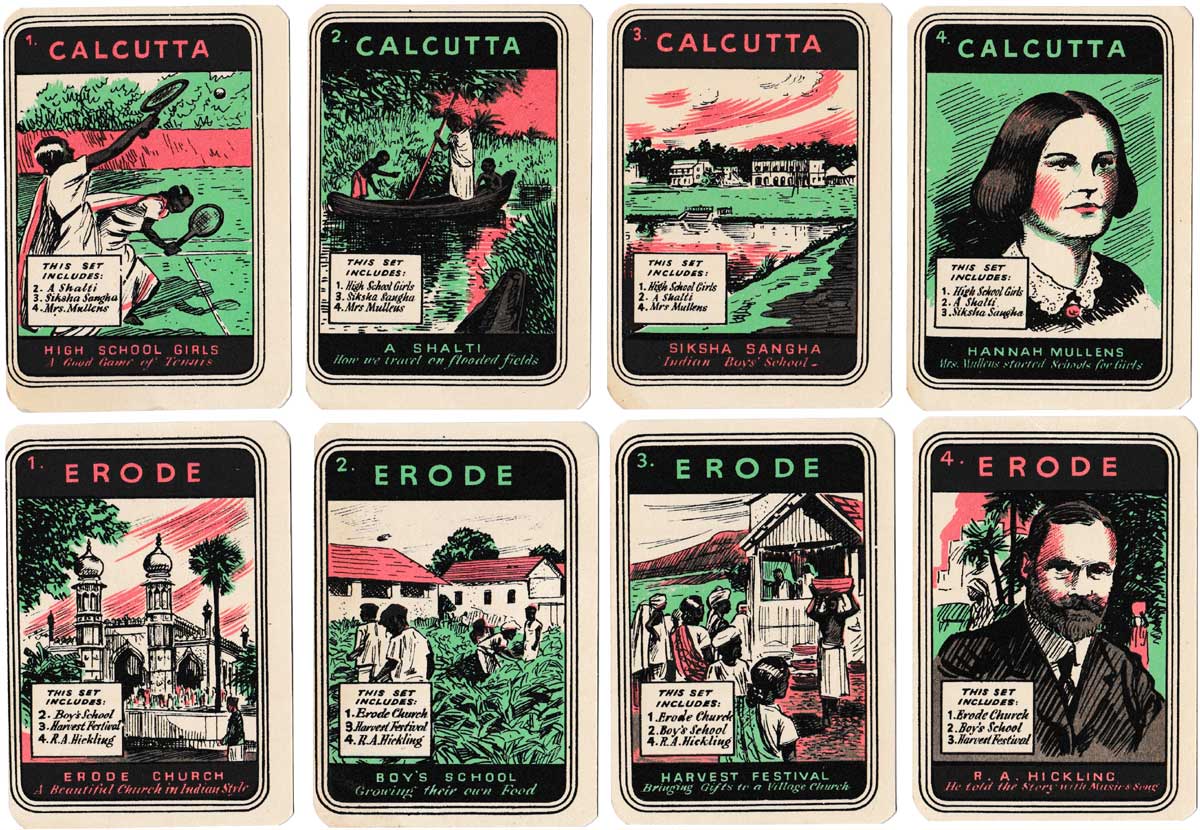
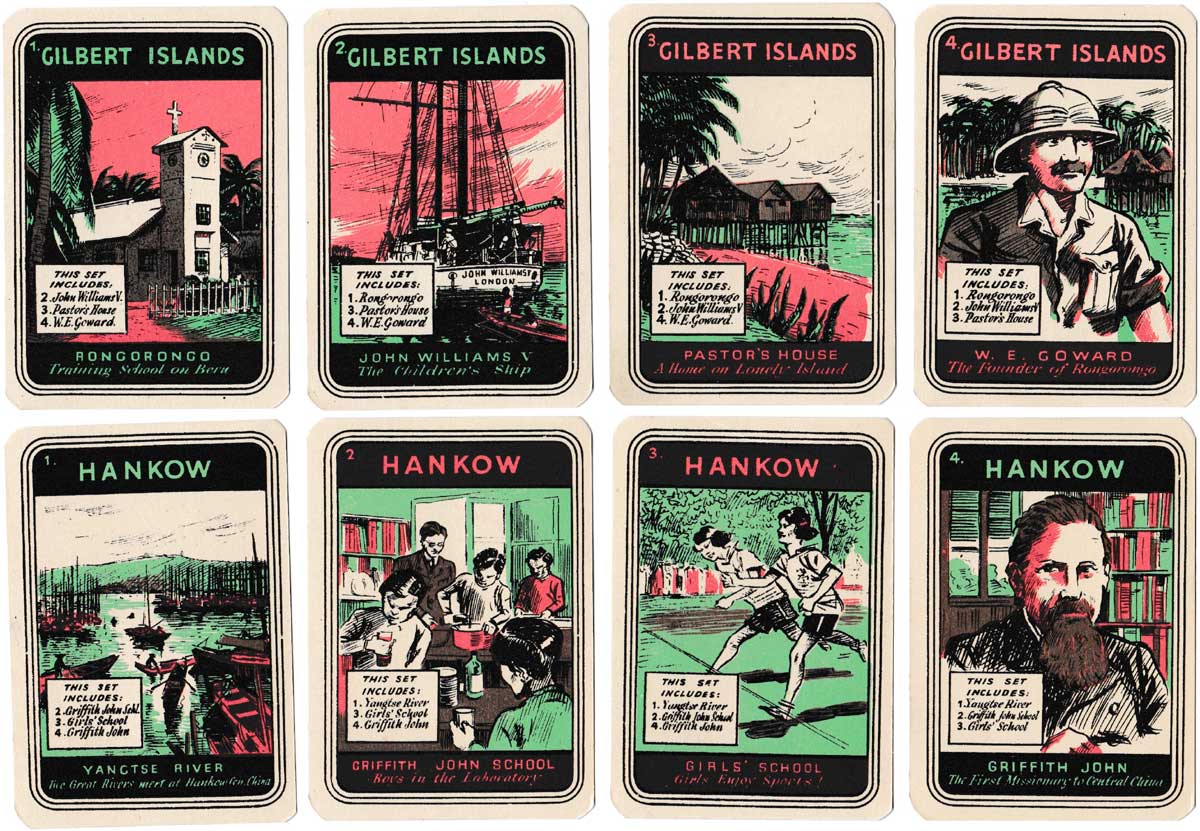
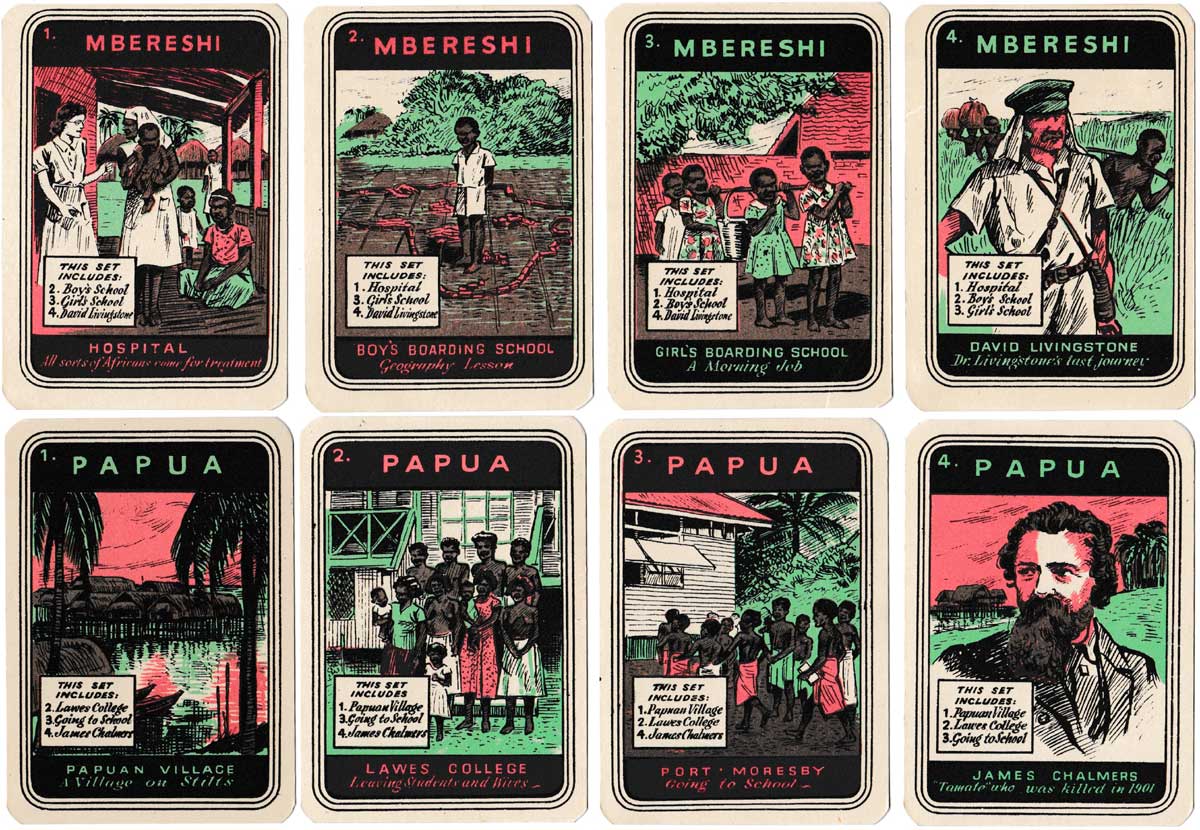
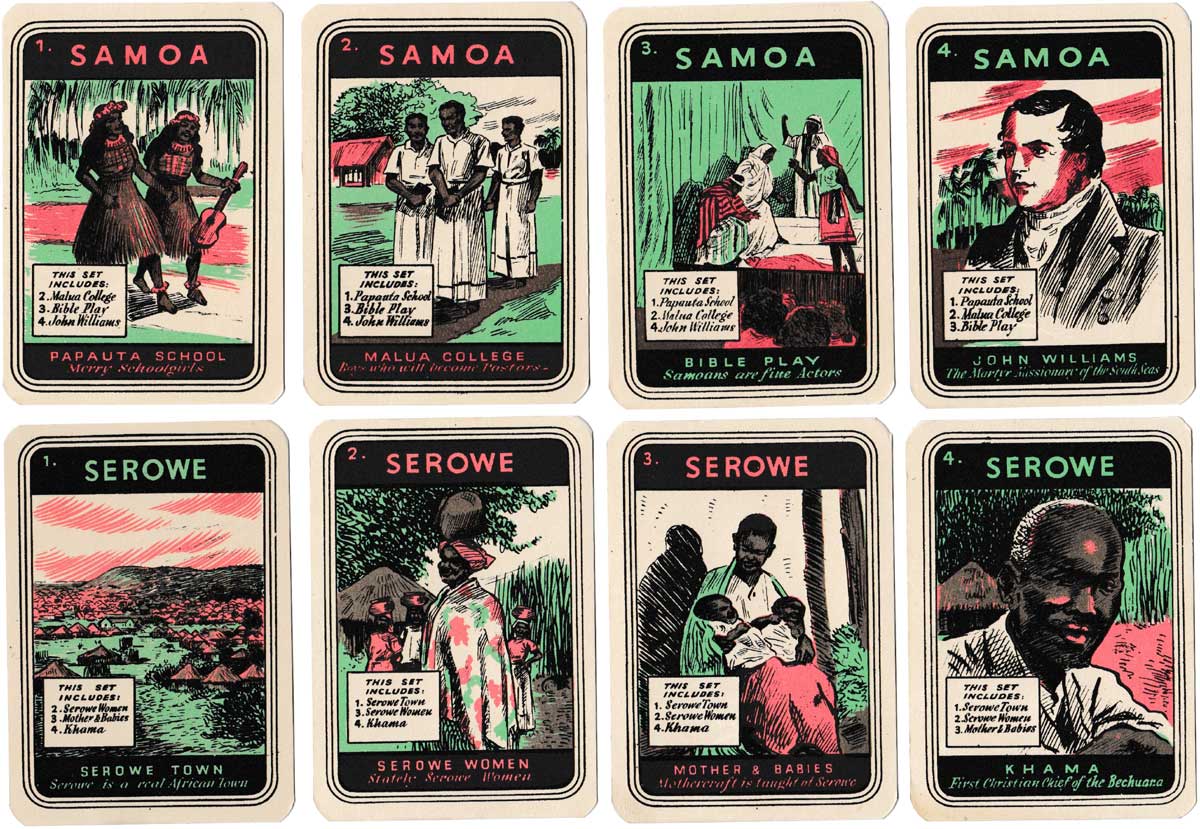
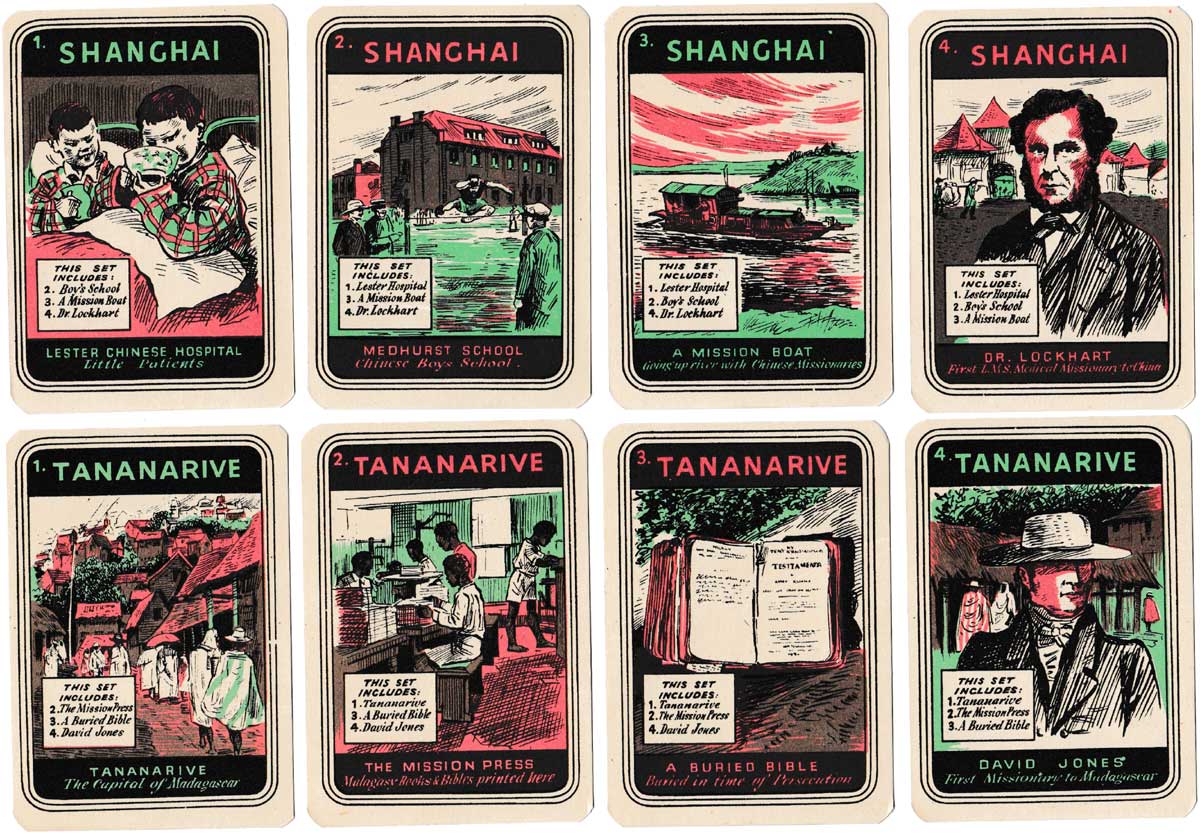
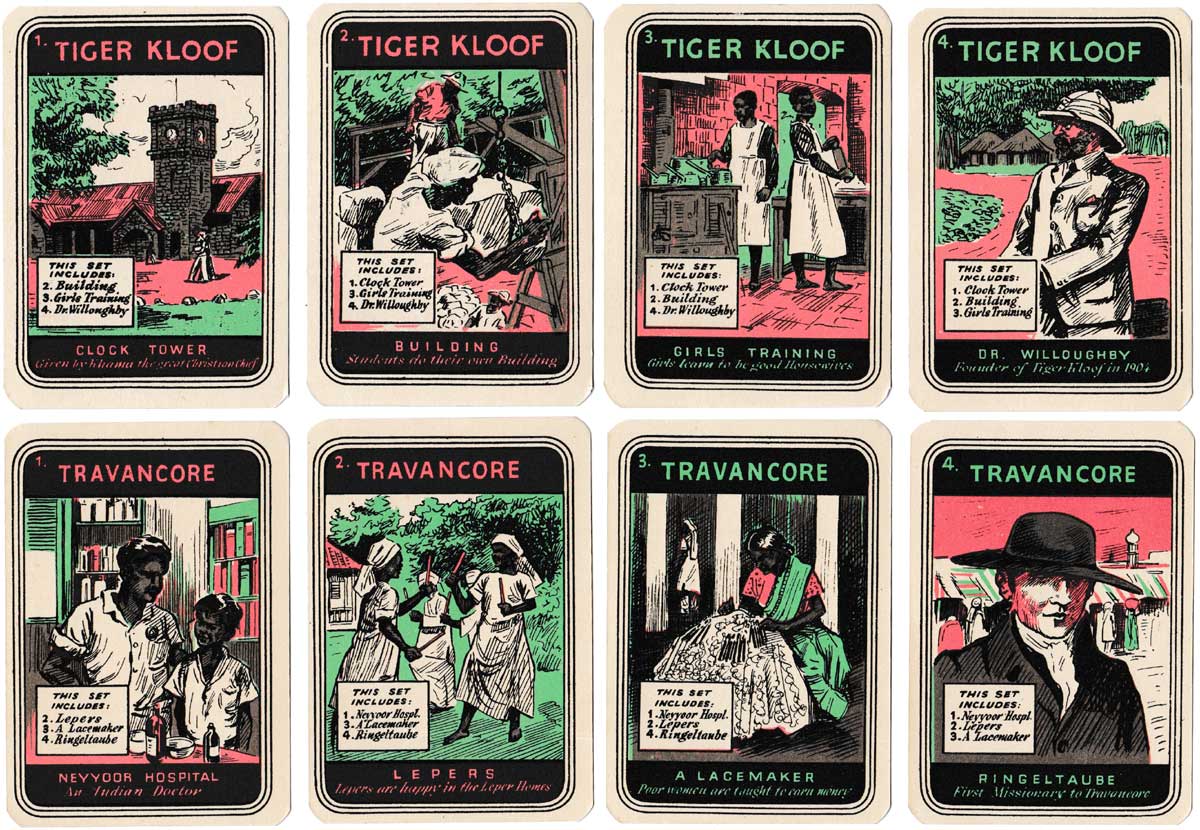
Above: Round the World Families published by the London Missionary Society, c.1945.
The Society was founded in 1795 and became involved around the world prioritising education, especially for girls, school and church building and installation of printing presses to be able to print the bible on site. As an example look at Erode (India), the no 1 card illustrates the famous so called “Brough Church”, built in 1927-1936 by Rev Anthony Watson Brough and named after him. He was a prolific builder who built 94 schools and 20 churches for the mission.
By Rex Pitts (1940-2021)
United Kingdom • Member since January 30, 2009
Rex's main interest was in card games, because, he said, they were cheap and easy to get hold of in his early days of collecting. He is well known for his extensive knowledge of Pepys games and his book is on the bookshelves of many.
His other interest was non-standard playing cards. He also had collections of sheet music, music CDs, models of London buses, London Transport timetables and maps and other objects that intrigued him.
Rex had a chequered career at school. He was expelled twice, on one occasion for smoking! Despite this he trained as a radio engineer and worked for the BBC in the World Service.
Later he moved into sales and worked for a firm that made all kinds of packaging, a job he enjoyed until his retirement. He became an expert on boxes and would always investigate those that held his cards. He could always recognize a box made for Pepys, which were the same as those of Alf Cooke’s Universal Playing Card Company, who printed the card games. This interest changed into an ability to make and mend boxes, which he did with great dexterity. He loved this kind of handicraft work.
His dexterity of hand and eye soon led to his making card games of his own design. He spent hours and hours carefully cutting them out and colouring them by hand.

Leave a Reply
Your Name
Just nowRelated Articles
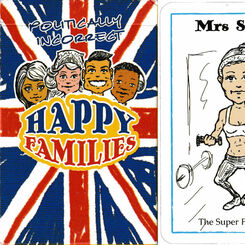
Politically Incorrect Happy Families
A Happy Families set with many differences from a conventional one.

Round the World Happy Families
Round the World Happy Families by Chiefton Products Ltd of Bristol, c.1950s.
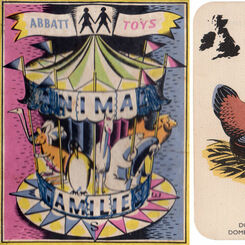
Abbatt Animal Families
Abbatt Toys Animal Families, c.1970.
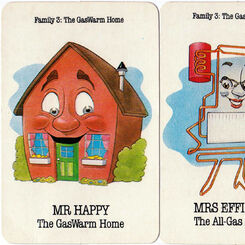
Gas Warm Homes
Gas Warm Homes Happy Families game published by British Gas, c.1980.
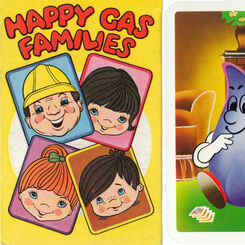
Happy Gas Families
Happy Gas Families published by British Gas, c.1985.
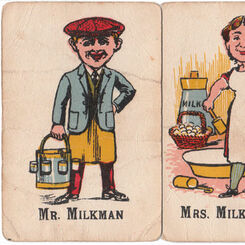
Trades People Happy Families
Happy Families card game depicting trades people from 1920s.
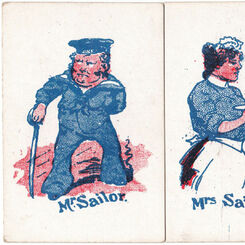
Merry Families
Merry Families #2 (Occupations), by Multum in Parvo Co. Ltd., c.1890.
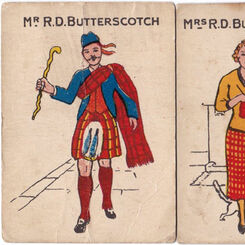
Parkinson’s Happy Families
Parkinson’s Happy Families published by Parkinson’s of Doncaster, confectioners established in the e...
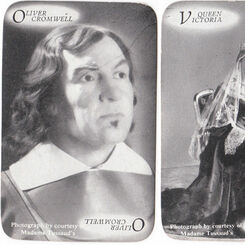
Have A Go
Have A Go card game published by Photo-Briton Ltd featuring photographs of waxwork figures from Mada...
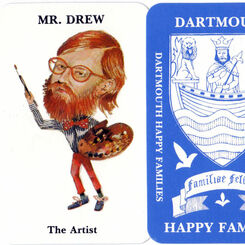
Dartmouth Happy Families
“Dartmouth Happy Families” printed by Tozer & Co, 1989 to raise funds for Dartmouth Swimming Pool.
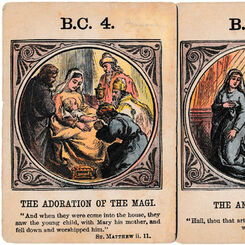
Anno Domini
Anno Domini biblical card game depicting New Testament history, published by John Jaques & Son, c.18...
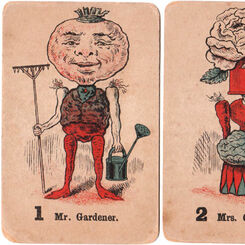
Merry Families
Merry Families published by Multum in Parvo Co., Ltd, from 1896

Spears Happy Families
Spears Happy Families.
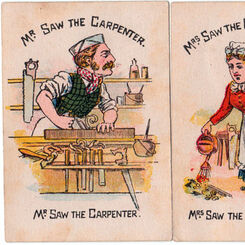
Funny Families
“Funny Families” card game manufactured by Woolley & Co, 1890s.
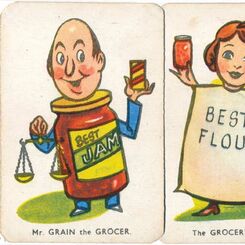
Happy Families No.5367
Tower Press “Happy Families” No.5367
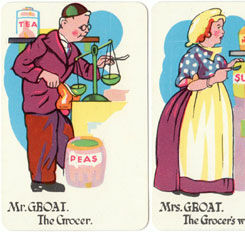
Happy Families, c.1950
Chad Valley “Happy Families” card game, c.1950.
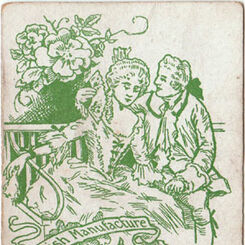
Happy Families, c.1930
“Happy Families” game published by Chad Valley c.1930 drawn in the slightly grotesque style of the V...
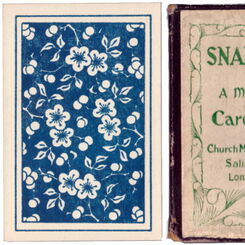
Snapshots
Snapshots, a Missionary Card Game depicting people from different cultural contexts engaged in their...
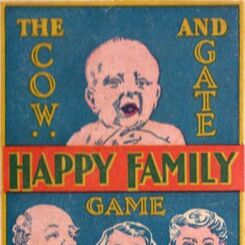
Cow & Gate Happy Family Game
Cow and Gate Happy Family game was issued around 1928 to promote nutrition products.
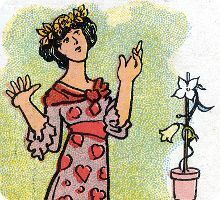
Happy Families
Chad Valley Happy Families originally designed by Max Pollock (1887-1943).
Most Popular
Our top articles from the past 60 days


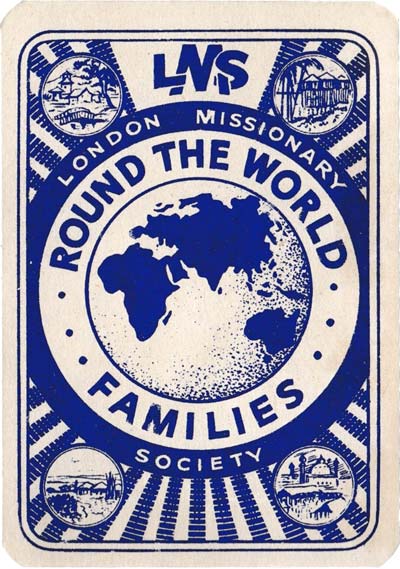
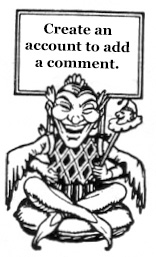 Your comment here. Your comment here. Your comment here. Your comment here. Your comment here. Your comment here. Your comment here. Your comment here. Your comment here. Your comment here. Your comment here. Your comment here. Your comment here. Your comment here. Your comment here. Your comment here. Your comment here. Your comment here. Your comment here. Your comment here. Your comment here. Your comment here. Your comment here. Your comment here. Your comment here. Your comment here. Your comment here. Your comment here. Your comment here. Your comment here. Your comment here. Your comment here.
Your comment here. Your comment here. Your comment here. Your comment here. Your comment here. Your comment here. Your comment here. Your comment here. Your comment here. Your comment here. Your comment here. Your comment here. Your comment here. Your comment here. Your comment here. Your comment here. Your comment here. Your comment here. Your comment here. Your comment here. Your comment here. Your comment here. Your comment here. Your comment here. Your comment here. Your comment here. Your comment here. Your comment here. Your comment here. Your comment here. Your comment here. Your comment here.




















